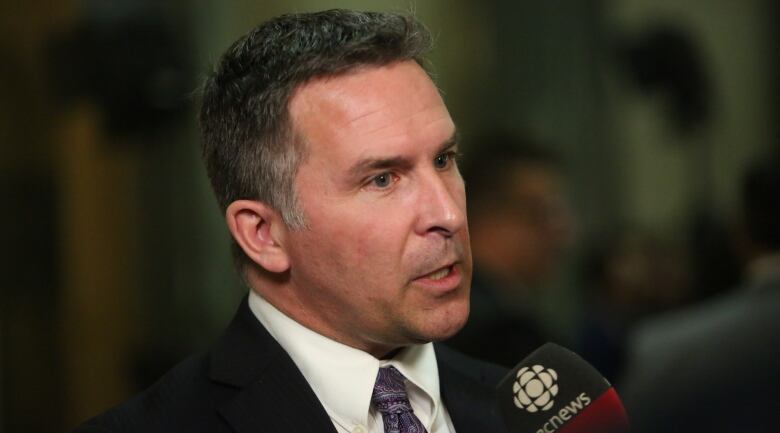Sask. teachers are voting on possible sanctions. Here's what it means
Teachers holding a sanctions vote Monday and Tuesday

Saskatchewan teachers are voting onpossible job action that could result in a full-scale strike for only the second time in the province's history on Monday and Tuesday, according to the president of the Saskatchewan Teachers' Federation.
More than 13,500 teachers from the STF will use the two days to decide whether job action is necessary and what that could look like.
"A sanction could be anything from basically nothing;if we get a strong sanctions vote it can itself sort of cause government to want to come back to the table," Patrick Maze said Monday. CBC has contacted the Ministry of Education for comment.
The last time there was a sanctions vote was in 2011 when the province's teachers went on strike for a day. A week later, the teachers took job action again and went on strike for two days.
Maze said any possible job action could be implemented immediately after the vote, if it's deemed necessary.
Some of the measures teachers may decide upon, if they make a choice to act, includerotating strikes and cutting voluntary extracurricular activities such ascoaching students on sports teams.

"Right now, we're just checking in with our members just to make sure that they're still with us and that they want to move to that next step," Maze said.
Members need to vote to provide the teachers' bargaining committee with the authority to impose sanctions, then it's the committee's responsibility to determine the type of sanction and when they would happen.
Bargaining talks have been ongoing for about nine months nowwith the two parties the Saskatchewan government and the province's teachers disagreeing on whether class size should or can be part of bargaining.
We don't take these matters lightly.- Patrick Maze, STF president, on possible sanctions
Education Minister Gordon Wyant said, in an editorial written for the Regina Leader-Post on Saturday, that class size is not something the government should worry about. He said it's the board of trustees who should tackle the problem of overcrowded classrooms.
Wyant also urged the STF to respect the conciliation efforts, but Maze said those talks, which have since wrapped up, were unproductive.
Maze said that the last thing teachers want is to be away from the classroom or after-school activities, but that a message must be sent to the government.
"We don't take these matters lightly," Maze said about possible job action. Results of the vote are expected to be revealed near the end of February.
In its offer, the provincial bargaining committee put forward a three-year deal that would see teachers get a one-time $1,500 payment per full-time teacher in 2019-20and an annual two-per-cent salary increase over the next two years.
The union is asking for smaller class sizes, a two-per-cent salary increase in 2019-20, a three-per-cent increase in 2020-21 and another three-per-cent bump in 2021-22.
The STF is also requesting a contract of employment for substitute teachers.












_(720p).jpg)


 OFFICIAL HD MUSIC VIDEO.jpg)
.jpg)



























































































